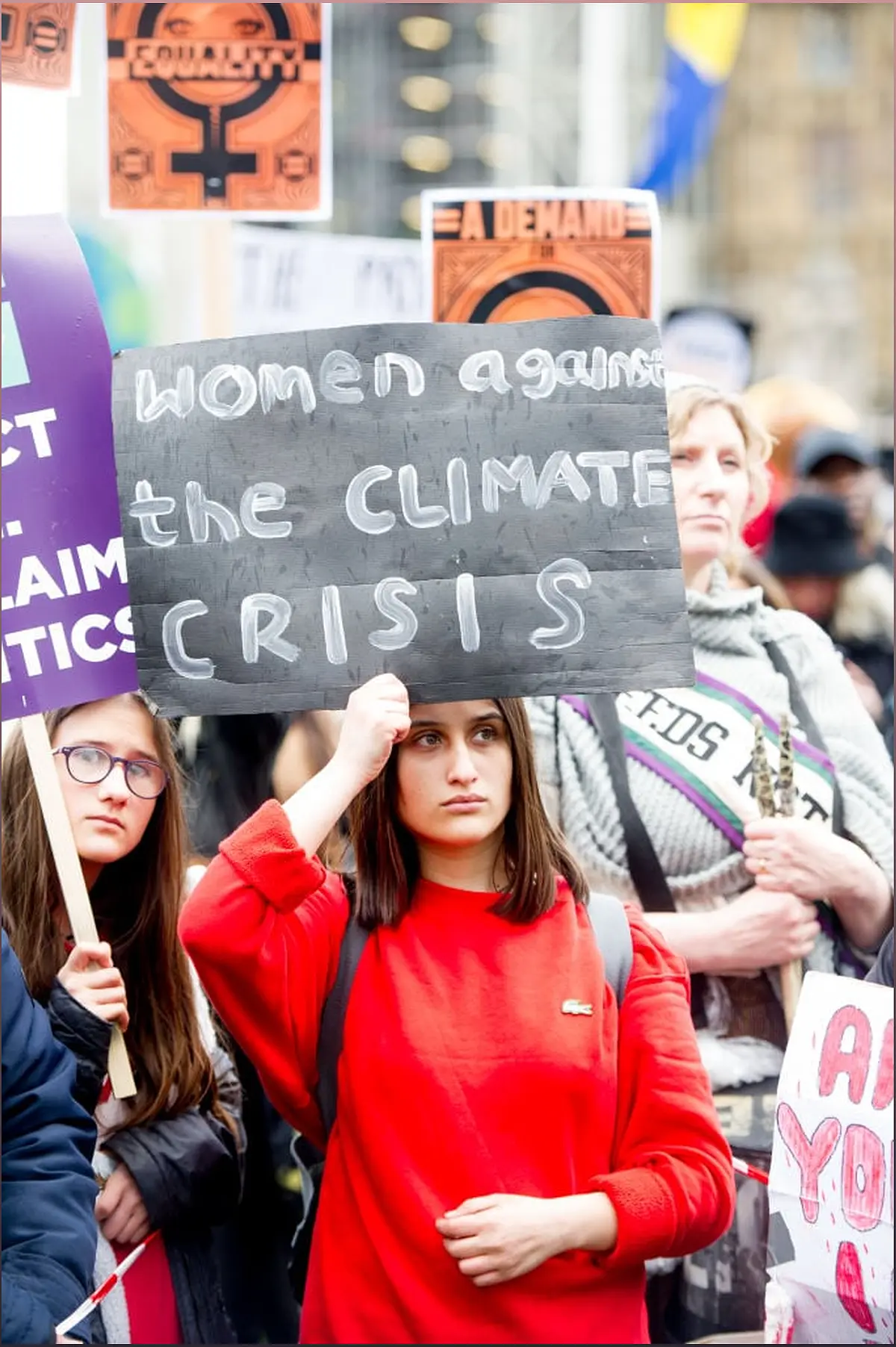Climate change is not just an environmental issue; it is a matter of public health and social justice. In the Fifth National Climate Assessment, a groundbreaking section dedicated to women's health and the vulnerability of LGBTQ+ individuals to the climate crisis has been included. This article delves into the impacts of climate change on women's health, the unique challenges they face, and the urgent need for comprehensive action. Join me, John Green, as we explore the intersection of climate change and women's health, shedding light on the disparities and calling for a more inclusive and resilient future.
The Disproportionate Burden on Women: Understanding the Intersection
Explore the unique challenges faced by women in the face of climate change and the intersectional nature of their vulnerabilities.
Climate change impacts everyone, but it does not affect everyone equally. Women bear a disproportionate burden due to their unique mental, sexual, and reproductive health needs, which intersect with existing social, racial, and economic disparities.
Women of color, who are more likely to live in low-income communities with higher exposure to climate-related disasters, face even greater risks. They experience compounded vulnerabilities that result from the intersection of gender, race, and socioeconomic status.
Pregnant individuals are particularly vulnerable to extreme heat, air pollution, and disaster-associated stressors. These factors contribute to poor pregnancy outcomes and the ongoing maternal mortality crisis.
LGBTQ+ Vulnerabilities: Recognizing the Unique Challenges
Discover the specific vulnerabilities faced by LGBTQ+ individuals in the climate crisis and the need for inclusive support and resources.
While the impacts of climate change affect everyone, LGBTQ+ individuals face unique challenges that exacerbate their vulnerability. Research shows that they often struggle to access resources after disasters due to the involvement of faith-based groups with anti-LGBTQ+ beliefs.
Moreover, LGBTQ+ individuals may face mental and physical dangers when required to stay in evacuation shelters designated for a different gender. These challenges highlight the intersectional nature of their vulnerabilities, with Black and Latinx transgender people facing additional exposure to heat and pollution due to socioeconomic disparities.
Building a Resilient Workforce: Promoting Inclusion and Opportunities
Explore the need for a more inclusive workforce and economy to adapt to the climate crisis and the steps to create new opportunities.
The climate crisis not only poses challenges but also presents opportunities for creating a more inclusive workforce. The transportation sector, for example, faces a labor shortage, while clean energy and climate-resilient housing offer new job prospects.
However, it is crucial to address the underrepresentation of women and people of color in these sectors. By implementing better human resources management practices, we can train and expand the workforce, ensuring equal access and opportunities for all.
Additionally, small businesses owned by women, people of color, and veterans are disproportionately impacted by climate change. Supporting these businesses and providing resources for adaptation is essential for building a resilient economy.
Food Insecurity: Disruptions in Production and Distribution
Understand the gendered impacts of food insecurity caused by climate change and the groups most affected by disruptions in food production and distribution.
Climate change poses significant threats to food production and distribution systems, leading to increased food insecurity. Women, children, older adults, and low-wealth communities are disproportionately affected by these disruptions.
Single mothers and women living alone are already more vulnerable to food insecurity, and climate change exacerbates their challenges. Subsistence farming, hunting, and cultural practices are also threatened, particularly in rural Alaska, where Iñupiat women's lives are becoming more difficult.
Women ranchers, who often have less knowledge about drought and weaker connections to networks dominated by men, also face disproportionate impacts. These challenges highlight the need for comprehensive strategies to address food insecurity and protect vulnerable communities.
A Call for Urgent Action: Mitigating the Climate Crisis
Recognize the need for immediate action to mitigate the climate crisis and create a more just and inclusive society.
The Fifth National Climate Assessment serves as a wake-up call, highlighting the urgency of the climate crisis. While efforts are being made to adapt and reduce carbon emissions, the scale of action does not match the magnitude of the problem.
It is imperative to take immediate and comprehensive action to address the impacts of climate change on women's health and LGBTQ+ individuals. This includes implementing policies that promote resilience, reducing greenhouse gas emissions, and prioritizing equity and social justice in climate action.
By working together, we can create a more sustainable and inclusive future, where the burdens of climate change are shared equitably, and the health and well-being of all individuals are protected.

